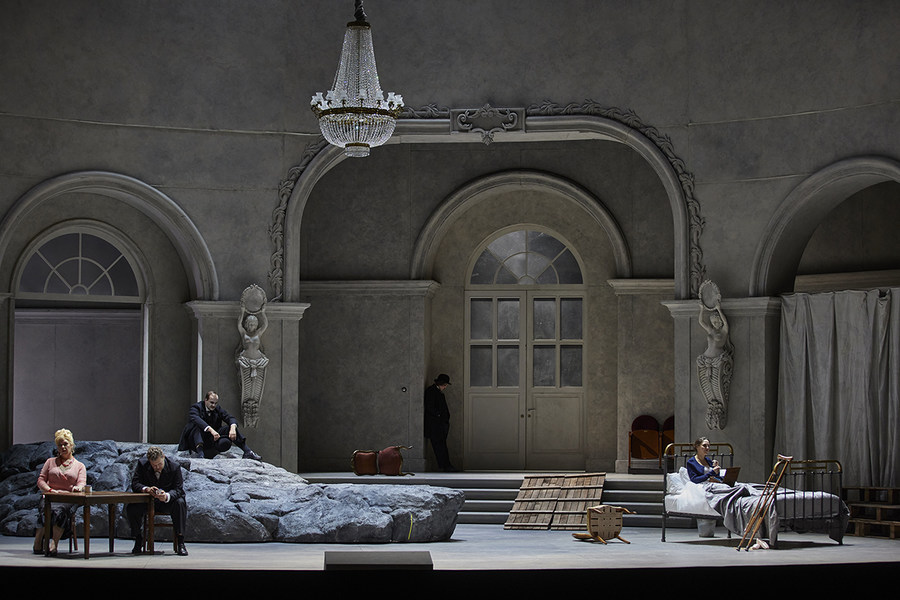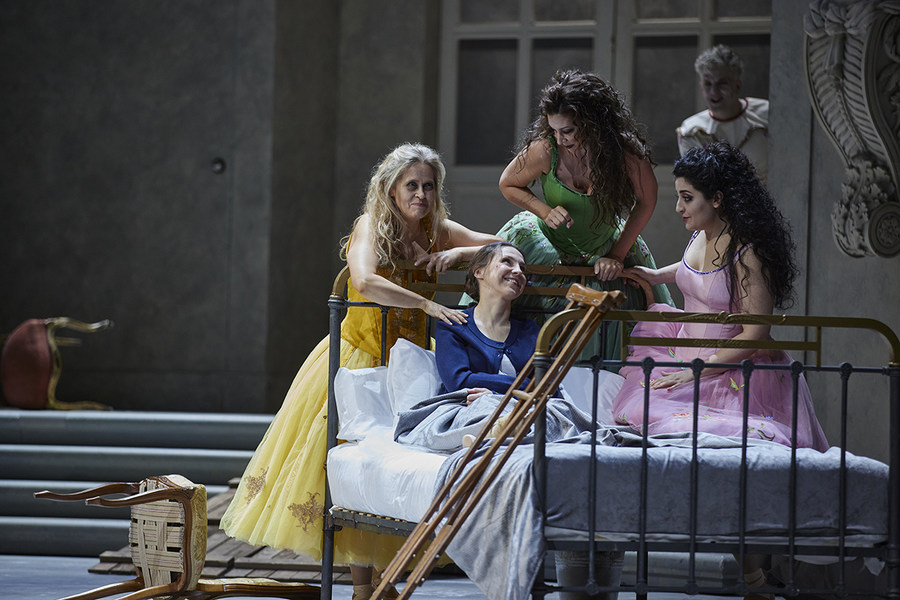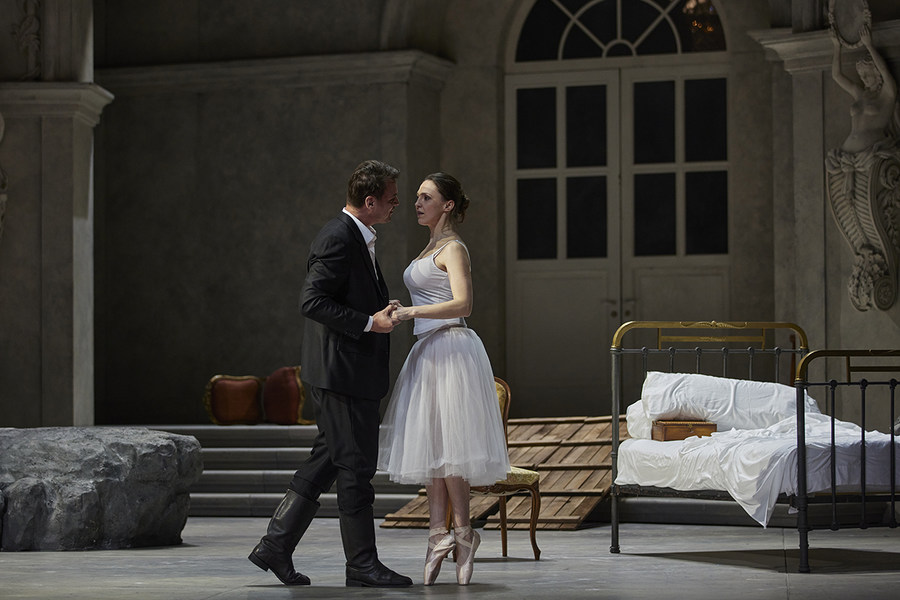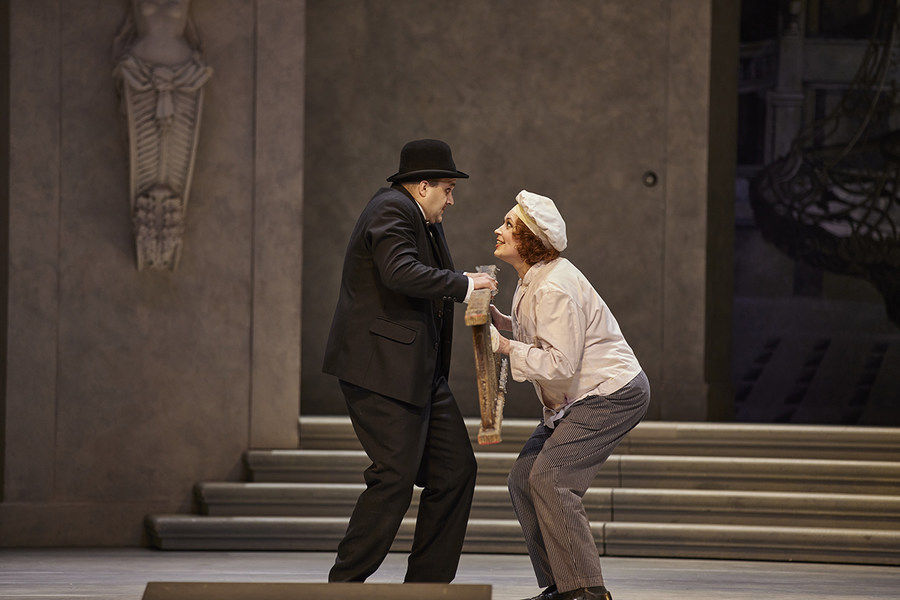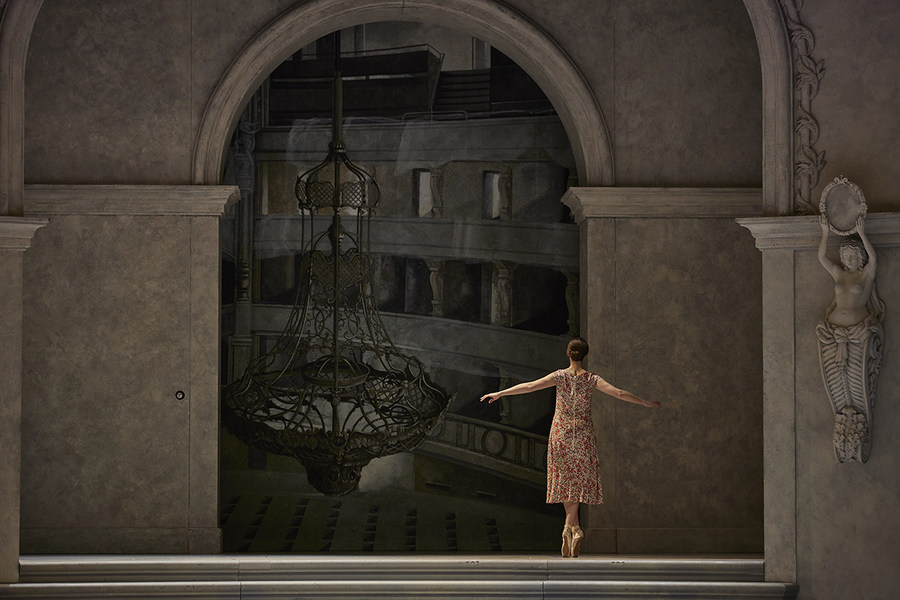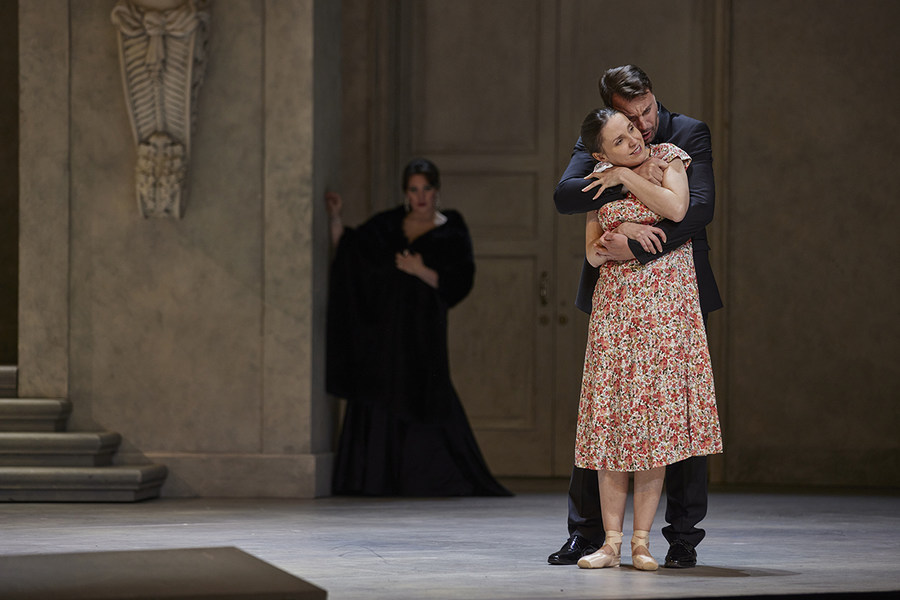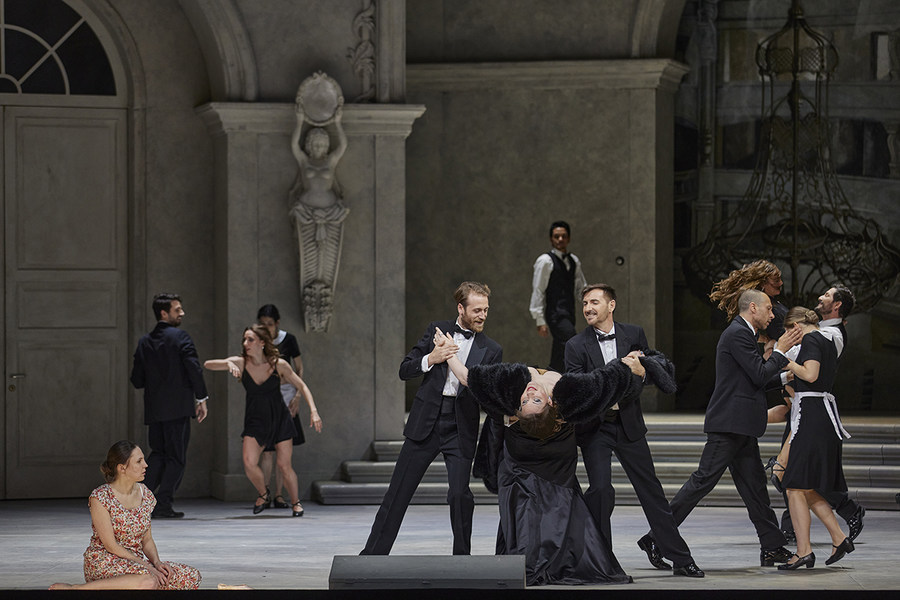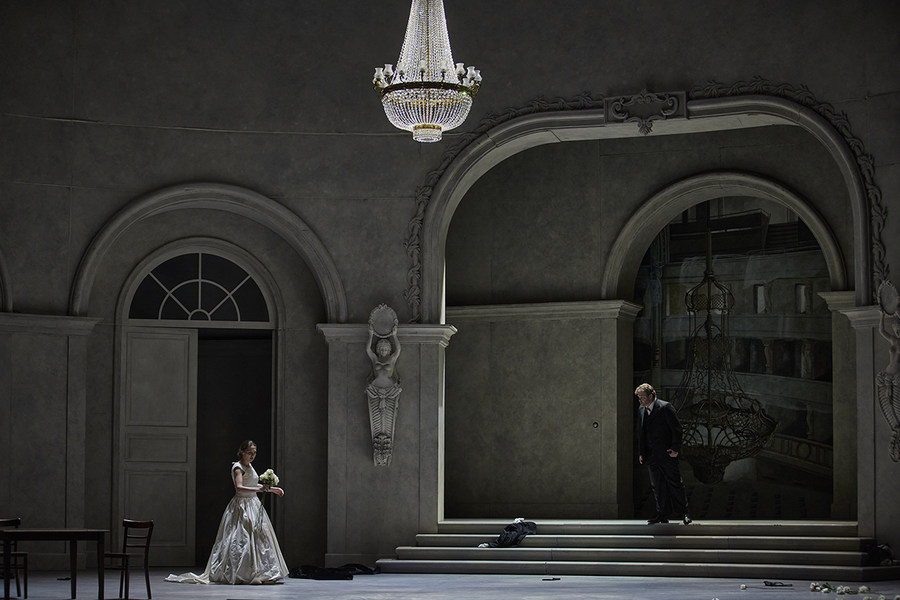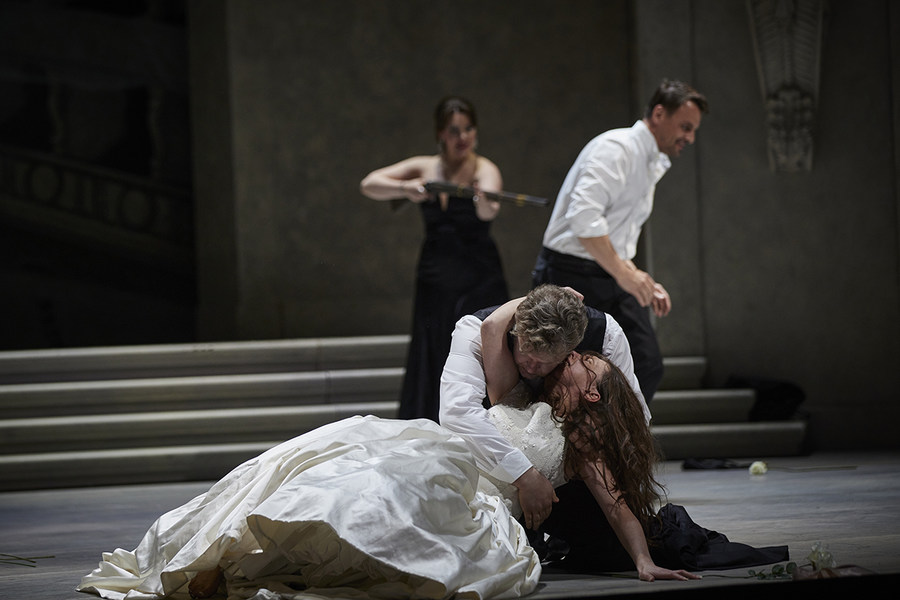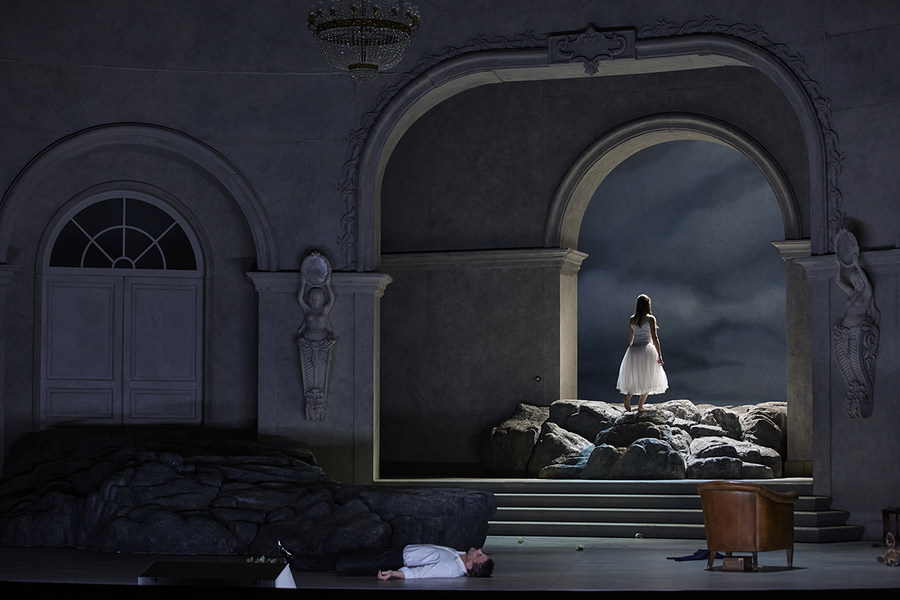A lyrical fairy-tale in three acts
Libretto by Jaroslav Kvapil
Performed in Czech with German and English supertitles
Premiere
7. May 2022,
No further performances in the current season.
Premiere cast
- Conductor Joana Mallwitz
- Staging Christof Loy
- Staged by Johannes Stepanek
- Set Design Johannes Leiacker
- Costume Design Ursula Renzenbrink
- Lighting Design Bernd Purkrabek
- Choreography Klevis Elmazaj
- Choir Jonathan Becker
- Dramaturgy Juliane Schunke
- Der Prinz Pavel Černoch
- Die fremde Fürstin Elena Guseva
- Rusalka Olesya Golovneva
- Der Wassermann Alexandros Stavrakakis
- Die Hexe Christa Mayer
- Der Wildhüter Sebastian Wartig
- Der Küchenjunge Nicole Chirka
- Erste Nymphe Ofeliya Pogosyan
- Zweite Nymphe Štěpánka Pučálková
- Dritte Nymphe Constance Heller
- Ein Jäger Simeon Esper
Sächsische Staatskapelle Dresden
Dancers
A co-production with the Teatro Real Madrid, the Teatro Comunale di Bologna, the Gran Teatre del Liceu Barcelona and the Palau de les Arts Reina Sofía, Valencia
Explore
Rusalka
